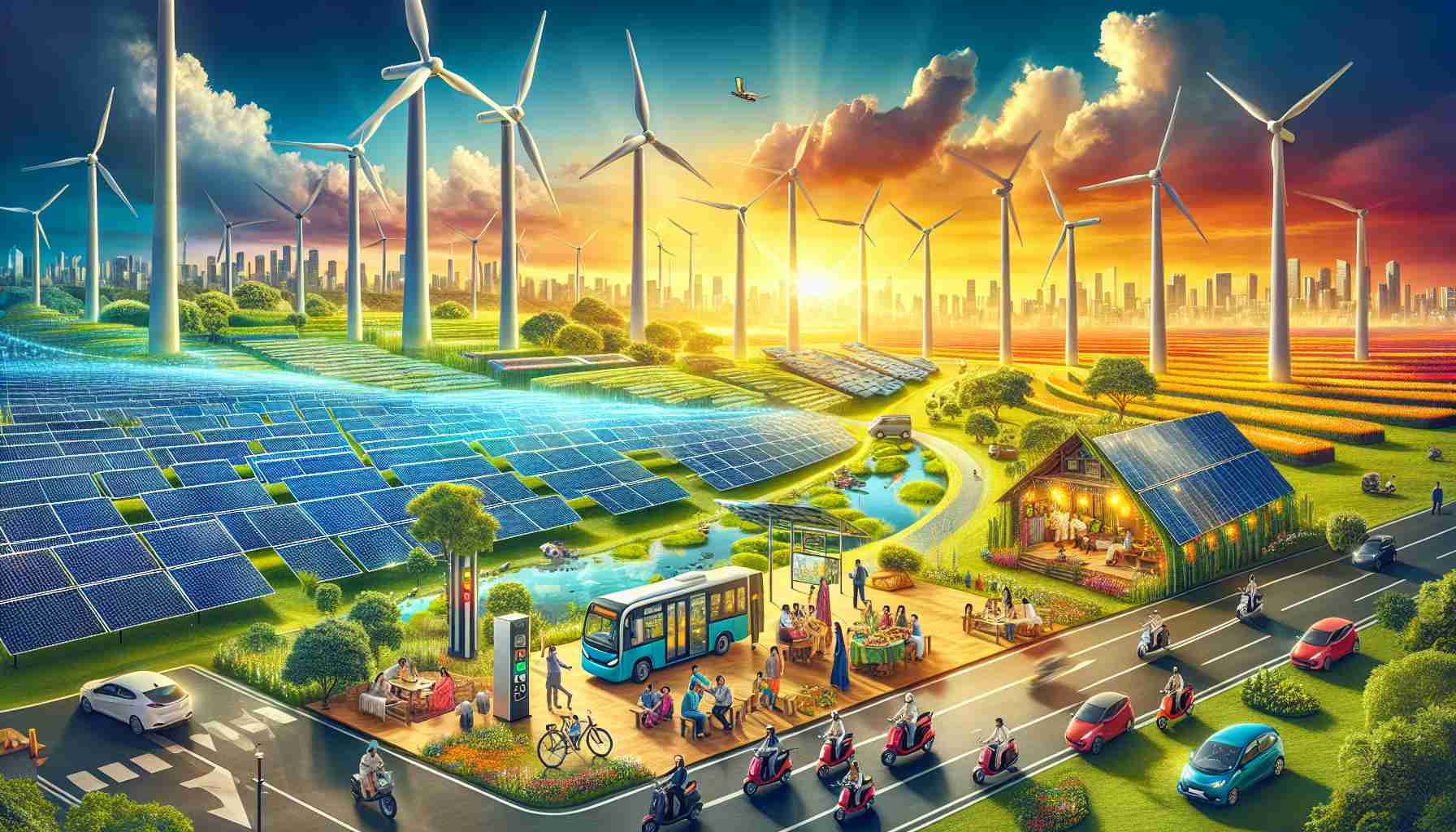The Indian automotive market is undergoing a seismic shift. Embracing the push towards sustainability, the country is increasingly replacing traditional Internal Combustion Engine vehicles with electric vehicles (EVs) and alternative fuel options, marking a pivotal change in transportation.
Recent data from the Ministry of Road Transport and Highways reveals that from April 1, 2019, to March 31, 2024, there were over 10.75 crore vehicles registered; among these, approximately 36.39 lakh were electric. This equates to an EV market share of 3.38% within India’s overall vehicle landscape.
Leading the charge in EV adoption is Uttar Pradesh, with over 6.65 lakh registrations, followed closely by Maharashtra and Karnataka. Tamil Nadu and Rajasthan round out the top five states actively participating in this green transition. Conversely, some regions, like Sikkim and Lakshadweep, show minimal engagement with EVs, highlighting disparities in adoption.
The Indian government has launched several initiatives to bolster this shift towards electric mobility. Programs like FAME, aimed at facilitating rapid EV adoption, and the Production Linked Incentive scheme, designed to enhance automotive manufacturing capabilities, play crucial roles in fostering an environment conducive to sustainable transport solutions. Furthermore, the newly introduced PM E-DRIVE scheme is expected to further enhance infrastructure and innovation in electric vehicles.
As the transition continues, India is set on a promising path toward a cleaner, greener future.
Revolutionizing Transportation: India’s Electric Vehicle Boom
The Shift Towards Electric Vehicles in India
The Indian automotive market is in the midst of a transformative shift towards electric vehicles (EVs), driven by a commitment to sustainability and a reduction of reliance on fossil fuels. As the country embraces new technologies, this transition signifies a monumental change in the way transportation functions.
Current Market Trends and EV Adoption
From April 1, 2019, to March 31, 2024, over 10.75 crore vehicles have been registered in India, with approximately 36.39 lakh — or 3.38% — classified as electric vehicles. Uttar Pradesh has emerged as the frontrunner in this shift, leading the country with over 6.65 lakh EV registrations. Maharashtra and Karnataka follow closely behind, while Tamil Nadu and Rajasthan also contribute significantly to the growing numbers. Notably, states such as Sikkim and Lakshadweep exhibit lower engagement levels with EVs, revealing a stark disparity across the nation.
Government Initiatives Supporting EV Growth
The Indian government has implemented various initiatives aimed at supporting the widespread adoption of electric mobility:
– FAME India (Faster Adoption and Manufacturing of Hybrid and Electric Vehicles): This flagship scheme promotes faster adoption of electric vehicles by providing financial incentives and supporting charging infrastructure development.
– Production Linked Incentive (PLI) Scheme: Designed to boost domestic manufacturing within the automotive sector, this initiative encourages companies to produce electric vehicles and their components in India.
– PM E-DRIVE Scheme: Recently announced, this scheme focuses on enhancing infrastructure and innovation within the electric vehicle sector, ensuring that the country is prepared to handle the growing demand for EVs.
Advantages of Electric Vehicles
Electric vehicles offer numerous benefits, making them an attractive alternative to traditional internal combustion engine (ICE) vehicles:
– Environmental Impact: EVs produce zero tailpipe emissions, contributing to cleaner air and a significant reduction in greenhouse gases.
– Cost Savings: Electric vehicles generally have lower operating costs due to reduced fuel expenses and less maintenance compared to gasoline or diesel engines.
– Energy Efficiency: EVs convert a higher percentage of electrical energy from the grid to power at the wheels compared to conventional vehicles, making them more efficient.
Challenges and Limitations
Despite the enthusiasm surrounding EV adoption, several challenges persist:
– Charging Infrastructure: A lack of widespread charging stations remains a significant barrier to mass EV adoption, particularly in rural and remote areas.
– Battery Technology: Improvements in battery technology are crucial for enhancing vehicle range, reducing charging times, and lowering costs associated with EVs.
– Market Penetration: While the market share of electric vehicles is increasing, ICE vehicles still dominate the landscape, posing a challenge for further growth.
The Future of Electric Vehicles in India
Insights indicate that the Indian electric vehicle market is set for substantial growth in the coming years. With continuous government support, increased investments from automakers, and a shift in consumer preferences, electric vehicles are poised to revolutionize India’s transportation sector.
Conclusion
As India makes significant strides towards embracing electric vehicles, it paves the way for a cleaner and more sustainable future. Balancing the advantages of EVs with the challenges they face will be crucial in achieving long-term success in this arena.
For more insights on electric vehicles and sustainability initiatives in India, visit India’s Official Government Portal.








